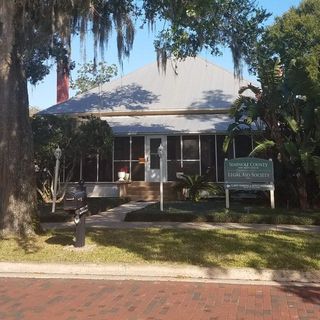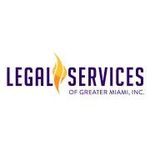Seminole County, Florida
Free legal advice or legal representation for people who cannot afford it.
Welcome to our Seminole County, Florida legal help and services page.
Legal Aid is for people who may not be able to afford an attorney. In order to qualify for legal aid at these non profit organizations listed below, you will need to contact them directly.
We provide the details of these offices to save you time in your search for legal aid. Our details include names, addresses, frequently asked questions, qualifications, etc where we can find them.
Legal aid services can include the following legal services for situations involving: Domestic violence, family law, housing rental evictions or home foreclosures, public assistance such as medicaid, food stamps, SSI Disability, SSDI benefits, public housing evictions, disability beneifts, etc.
Finding hard to locate resources for legal is what LegalAidOffices.com is all about. We scoured thousands of non profit resources to find as many local resources for free legal assistance as we can. View our listings below.
Search Results:
-
 Seminole County Bar Association Legal Aid Society Email Website Learn more 101 West Palmetto Ave
Seminole County Bar Association Legal Aid Society Email Website Learn more 101 West Palmetto Ave
Longwood, FL - 32750
(407) 834-1660
Eligibility: Low income in need of legal help. Follow these steps to get help: Call the office. A staff member will be happy to speak to you. They will determine if you qualify financially and if your case aligns with our servi...See Full Details
 Community Legal Services Mid FL - Sanford Office (Seminole County) Email Website Learn more 315 Magnolia Avenue
Community Legal Services Mid FL - Sanford Office (Seminole County) Email Website Learn more 315 Magnolia Avenue
Sanford, FL - 32771
(407) 322-8983
Office Hours: Monday-Friday, 8:30 a.m. 12:00 p.m., Closed for lunch from noon to 1 p.m. and reopens 1:00 p.m. 3:00 p.m. Office will be open from 3:00 p.m. 5:00 p.m. for appointments only. Services Provided Public Benefits CLSMF Public Benefits attorneys, paralegals and advocates help eligible res...See Full Details
Florida Cities
Important Information
Legal Aid Funding
Legal aid professionals and organizations oftentimes receive government funding for taking on cases with those who cannot afford attorneys. For the most part, funding is limited so legal aid entities can only take on a limited amount of cases. Qualifications are often rigid.Resources